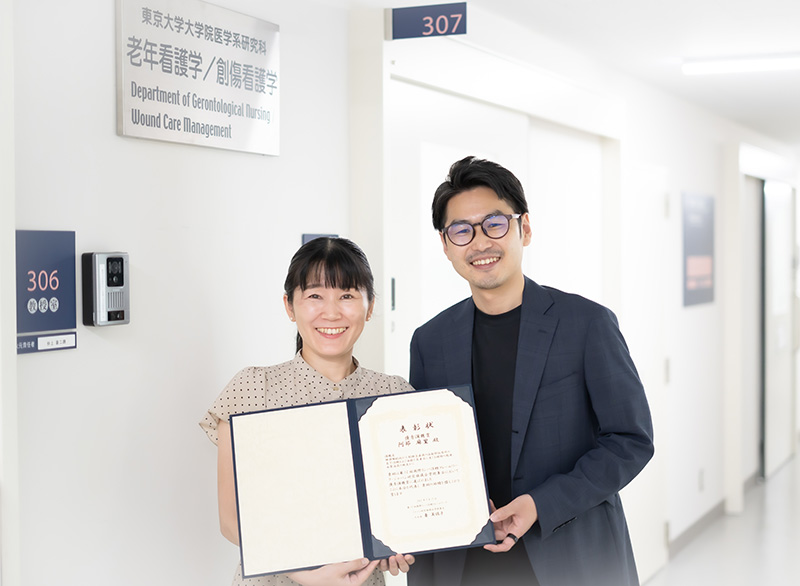[Objective] To administer anticancer drugs via a peripheral vein, it is important to preserve veins. Even in the absence of obvious extravasation, subclinical inflammation such as subcutaneous edema or thrombus may occur at the injection site, and induration (pathological hardening of soft tissue) may later occur. The purpose of this study was to explore the relationship between local changes at the injection site and induration development after treatment for the development of vessel health and preservation care.
[Methods] This was a secondary analysis of a prospective cohort study (PMID: 32942231) in which changes in skin temperature at the injection site were observed in the chemotherapy room. 31 subjects. Abnormal subcutaneous findings (edema, thrombus, and vessel wall thickening) observed using an ultrasound device immediately after anticancer drug administration were explored for association with induration using binomial logistic regression analysis.
[Results] There was a significant positive association of subcutaneous edema, vessel wall thickening, and thrombus immediately after treatment with the occurrence of induration on the next treatment day (edema: OR 12.5; p = 0.007, vessel wall thickening: OR 8.0; p = 0.030, thrombus: OR 22.2; p = 0.001).
[Conclusion] Prevention of subcutaneous edema, vessel wall thickening, and thrombus at the injection site immediately after treatment is the key to vessel preservation care, including prevention of induration.


